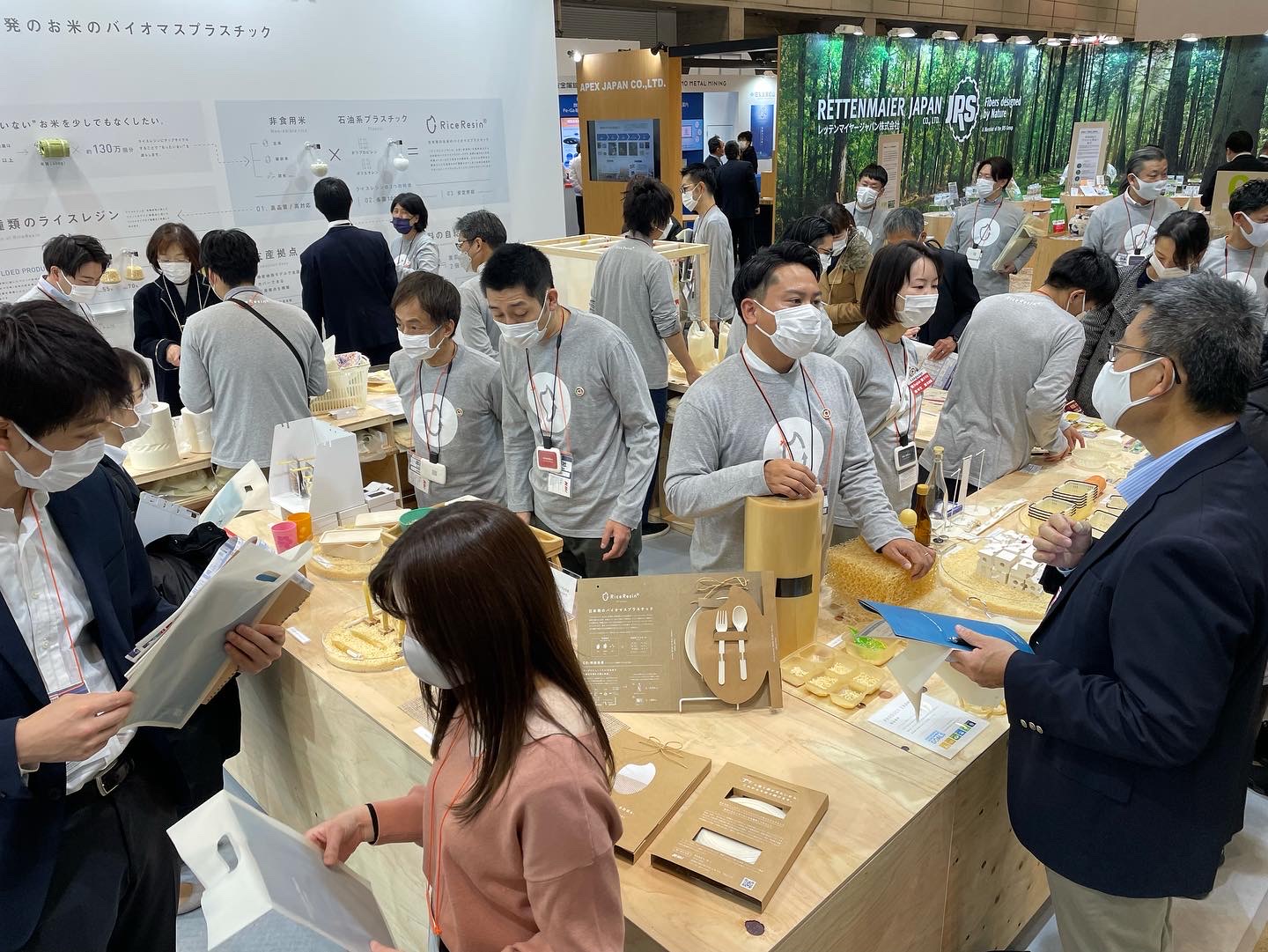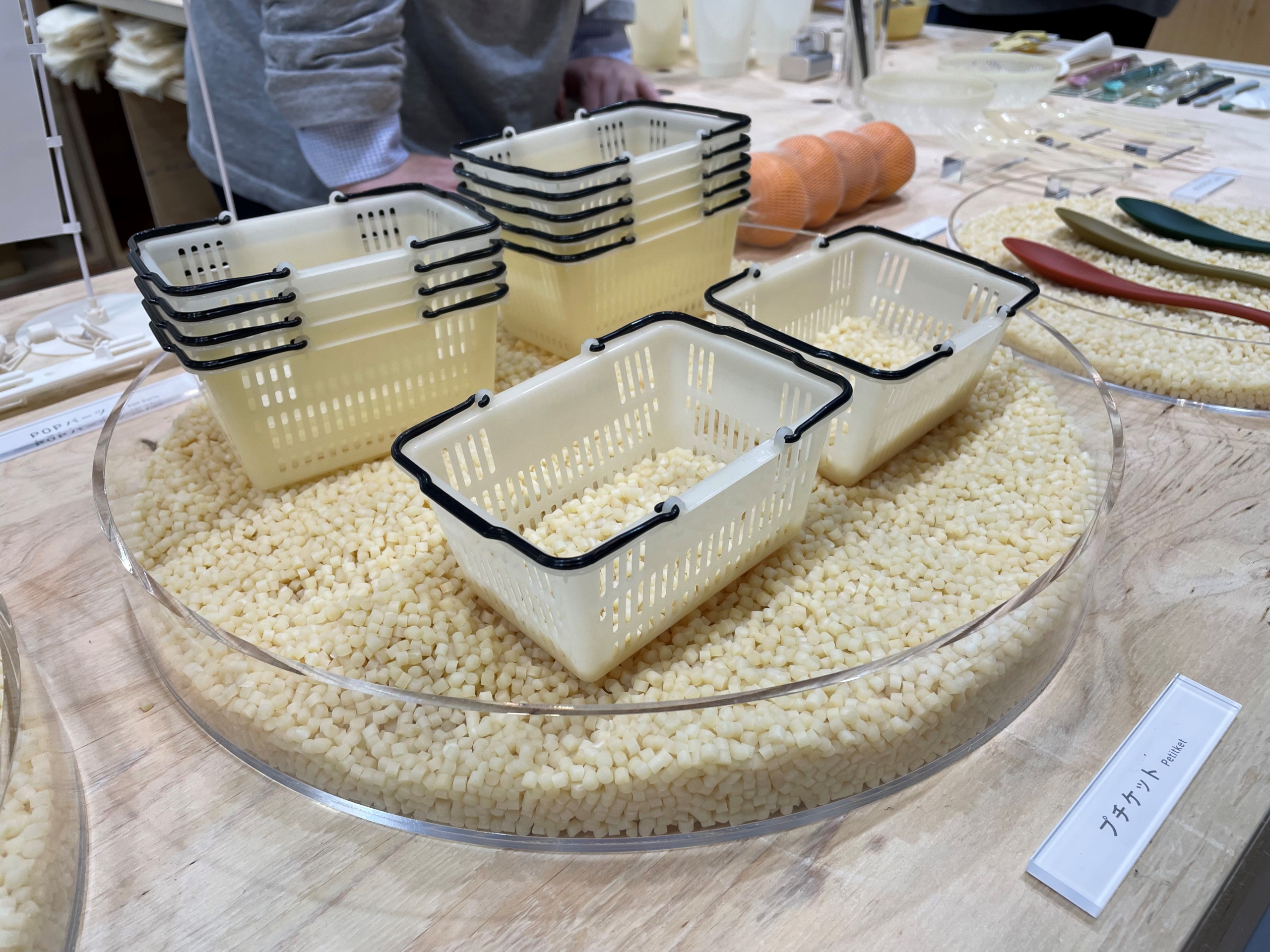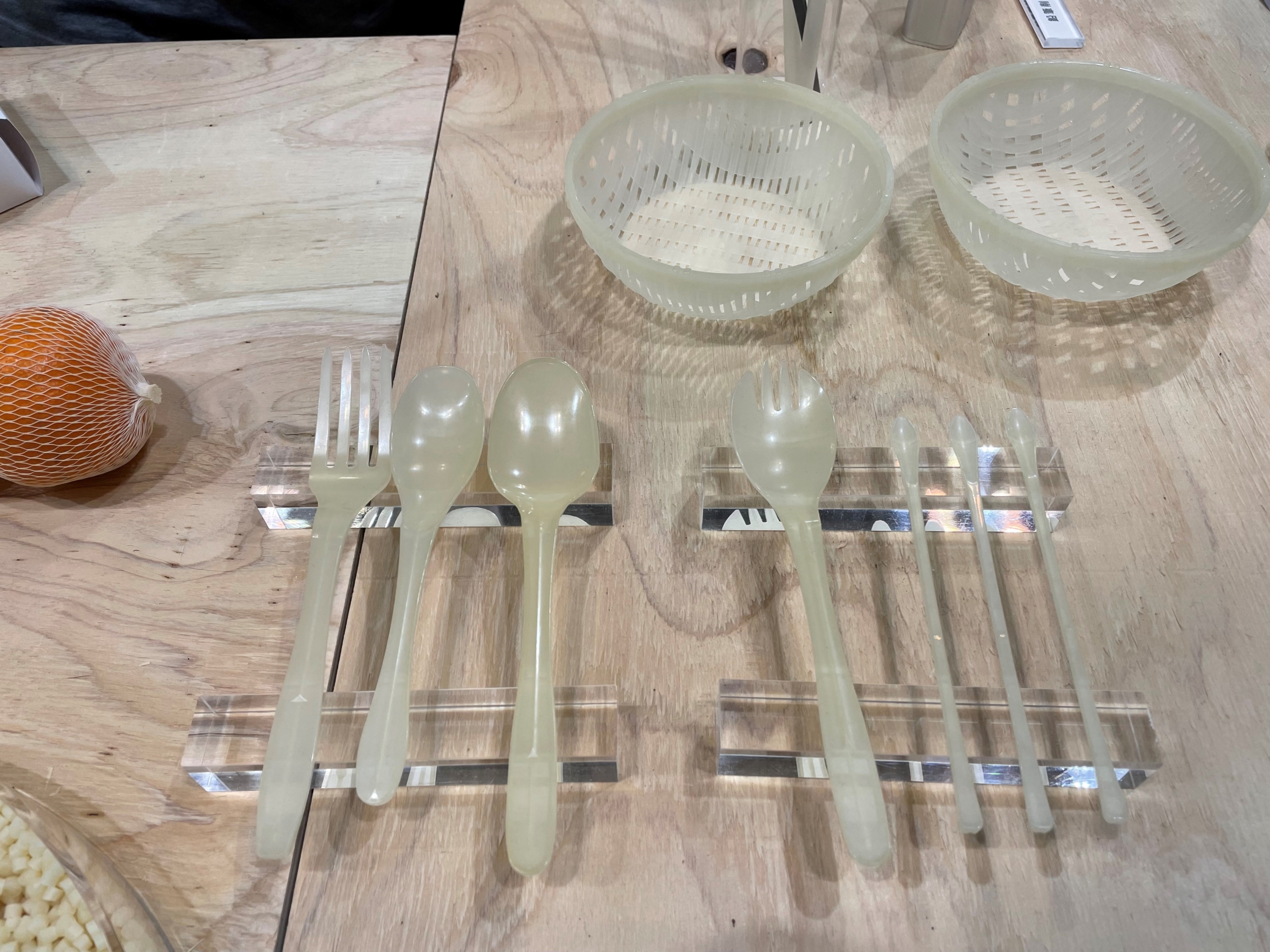Biomass Plastic Innovation by Rice Resin
O

![]()
ur strength is that we manufacture and sell two types of biomass plastics;
1) Biodegradable plastics called "Neoryza" that can return to nature, and 2) Non-biodegradable plastics called "Rice Resin" that has strength and durability. Our technology can upcycle regional and national crop wastes into raw materials for biomass resins.
Knowing the existence of rice wastes (rice scraps, out-of-spec rice, expired rice, rice damaged by typhoons and other disasters, etc.), which has become a social problem, we started our research and product development about 20 years ago. Rice Resin can be used to produce plastic products, and the resin contains 10 to 70% of rice as a raw material. Our Rice Resin & Neoryza will continue to contribute to resolving micro-plastics pollution, climate change, and decarbonization issues.
Our main product 'Rice Resin' is made from inedible rice which has excellent physical properties, and both domestic and International markets are featuring it's Up-cycling Plastic Innovation everywhere. (see Fig. 1 and 2)
Video played at COP 26 at Japan Pavilion (1st to 12th November 2021)
 Fig. 1 What is Rice Resin and Who produces it and How! (PDF)
Fig. 1 What is Rice Resin and Who produces it and How! (PDF)
 |
 |
 |
Fig. 2. Rice Resin exhibited at Sustainable Material Expo
Major Features and Advantages
Our business is characterized by a variety of features:
- Unlike polylactic acid and bio-polyethylene, which are produced after fermented bioethanol is generated, we produce biomass resins by kneading with polymer resins.
- Compact plant design is possible by using general-purpose machinery and equipment as the main equipment, instead of using large-scale chemical plant facilities made from sugarcane, corn, etc. as a metaphor.
- Local production for local consumption is possible because biomass from the region or country can be used as feedstock.
- The compactness of the plant and equipment used also makes it possible to accommodate small-lot production.
- The introduction of remote monitoring and operation systems such as IOT and DX is being actively promoted, making it easy to deploy in multiple regions.
- There is another reason for choosing rice as a raw material, and that is the size of the rice to be mixed with the resin. Unlike other biomass materials, rice can be harvested, threshed, and put directly into the mixer to be mixed with resin, saving much more energy than larger materials that need to be harvested, dried, and etc.
*Detailed information on the company and the product
Rice Resin had the greatest attentions and visitors to our booth at Japan biggest Sustainable Material Expo 2021. Expo
JCI World Congress Hackathon Pitch 2020. Biomass Resin Holding’s 1st Prize winning presentation
Technology Data
Possible Applications
Unlike polylactic acid and bio-polyethylene, which are produced by first generating bio-ethanol, our products do not require large-scale chemical plant facilities because biomass plastic is produced by kneading.
Our products are designed using general-purpose machinery and equipment as the main equipment, and are compact in size with high adaptability to localization. In addition, local biomass can be utilized to produce biomass plastics for local consumption. In addition, remote monitoring and operation systems are actively being introduced, making it easy to expand the system to multiple regions.
Competitive Advantage
Since there is no need for large-scale chemical blasting facilities, the basic production line installation cost is only 150-200 million yen. (This does not include land, buildings, or basic utility facilities.) The estimated production volume of Rice Resin is 1,000 tons per year.
The main production equipment is a continuous twin-screw extruder for plastic compounding, and the other ancillary equipment consists of general-purpose equipment for plastic molding and processing, so it does not include any very special equipment.
In terms of operation and management, each facility can be monitored remotely, making it possible to operate the plant even in cases where highly specialized personnel are not available at all times. Furthermore, waste materials can be recycled and recharged at a reduced cost, or they can be utilized as RPF (Refuse Paper and Plastic Fuel).
Performance
- Establishment of a method for preparing local biomass (other than rice)
- Adjustment of biodegradation speed by biomass content
- Biomass concentration ≈ CO2 reduction (carbon neutral)
Technical Maturity / Past Record of Introduction
- Installation of three large production extrusion units in China (2019)
- Installation of two medium-sized production lines in Vietnam (2021)
Information on Patent Related to This Technology
- Currently under application
- Publication number: 2021-063153
(A simple and industrially viable method for producing highly concentrated biomass polyolefin composites composite materials)
Company Data
| Name | Biomass Resin Holdings Co., Ltd. |
| Address | EGG JAPAN Shin Marunouchi building1-5-1 Marunouchi Chiyoda-ku, Tokyo, Japan |
| Capital | 135.16million yen (as of March 2022) |
| Contact person | Mr. Makihito DEGUCHI E-mail: maki@biomass-mkt.com TEl.: +81-3-4540-6322 |
| Number of employees | 60 (as of March 2022) |
| Date of company foundation | 10 March, 2020 |
| Type of business | Manufacturing industry of Biomass Plastic |
International operation
| Number of employees for international operation |
30 |
|
Overseas offices |
City, Country | Name of Company (if applicable) |
| Bac Giang Province, Vietnam | Huari (Viet Nam) Printing and Packaging Co., Ltd. | |
Modality of business transaction
Partnership
Local biomass that can be procured locally will be manufactured by local partner companies.
Licensing of patent
Licensing of manufacturing technology to local partner companies.
Attachments
Contact Person(s)
*Please mention that you saw UNIDO's website when making the first contact with the company.
Registered Category
- Environmental Technologies : Circular Economy (3R)
- Agribusiness Technologies : Food value chain

